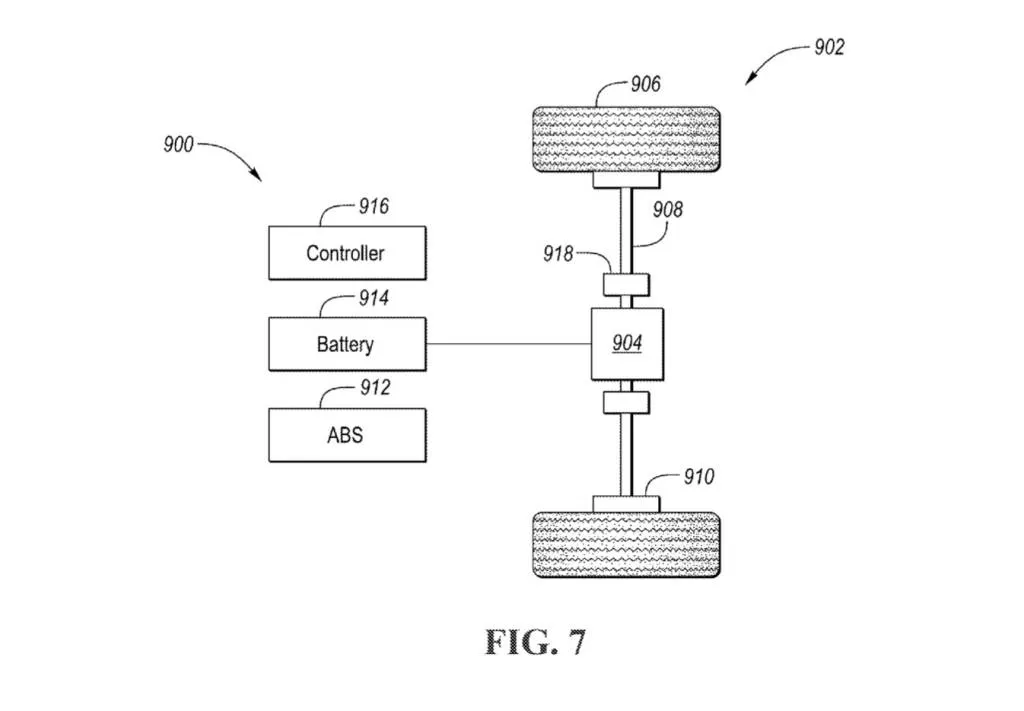A newly surfaced patent application hints that Ford is working on a new drift mode for both internal-combustion engine cars and EVs.
The application was filed all the way back in September 2020 but published by the United States Patent and Trademark Office (USPTO) this week. It describes using a car’s friction brakes to lock the rear wheels to induce a drift. In drift mode, the wheels would be decoupled from the driveline via clutches to allow them to spin freely, with torque applied via an actuator to keep them spinning.
Ford drift mode patent image
Ford claims this system could be applied to internal-combustion vehicles, EVs, or hybrids. The automaker made a similar claim in a drift mode patent application that surfaced in 2022. That application also discussed using the friction brakes to lock up the rear wheels to start a drift.
Both iterations are very different from Ford’s previous drift mode. The last Ford Focus RS was able to use its all-wheel-drive system to send more torque to the rear wheels—particularly the outside rear wheel—to help induce a slide. The 2024 Ford Mustang also introduced an electronic drift brake designed as an easier and more effective alternative to pulling a car’s hand brake to start drifting.

Ford drift mode patent image
Some BMW M and Mercedes-AMG models, as well as the current Volkswagen Golf R, also feature drift modes. But these rely on sending more torque to the rear wheels, not locking them up.
A patent filing is not confirmation of production plans, but Ford has been eager to show the sportier side of EVs with one-off builds like the seven-motor Mustang Mach-E 1400. A drift mode would certainly help get that message across. The 2024 Mustang Mach-E Rally also features a RallySport drive mode that allows more sideways action, although it’s aimed primarily at gravel roads.
